Top 10 Oddest Coin Shapes that Were Actually Used
Usually coins are round and this is the norm in modern coinage - the reason is practical: round coins are less prone to wear and are most easily mass-produced. But there are some interesting exceptions.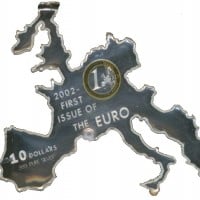
It was issued in 2002 to celebrate the introduction of the euro. But if you thought it was issued by Brussels, you were wrong. It wasn't even issued by a European country. Keep on reading...
It was issued by Nauru, an island republic located in the Pacific Ocean, northeast of Australia!
It was a $10 coin (I guess Australian dollar). Not Euro... But a coin of 1 Euro was depicted on it...
This is so odd from any viewpoint, but at least we can't deny Nauru's sense of international solidarity.
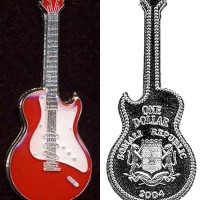
The fact that it was issued by Somalia makes it even weirder. It seems that they have nothing better nothing to do than issuing guitar coins and fighting each other.
It's a 2004 commemorative dollar coin issued by Somali Republic, to mark the 50th anniversary of rock and roll music and the Stratocaster guitar.
I didn't even know there were coins that have different colors aside from bronze, silver, and gold.
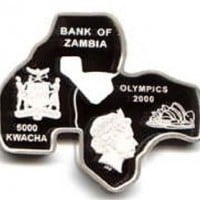
This is one of the most bizarre shaped coins ever. It was issued by Zambia to commemorate the 2000 Sydney Olympics.
On that weird map Zambia (Africa) looks attached to Northern Australia...
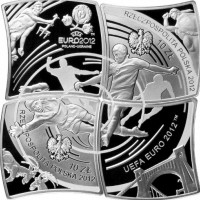
In the image, you can see 4 pieces that fit together to form a flag-shaped coin. A flag-shaped coin is also odd. Besides, the shape of these 4 pieces is unusual, too. So this coin has 3 odd elements.
It was issued by Poland in 2012 for the occasion of the Euro 2012 Football championship, where Poland and Ukraine were host countries.
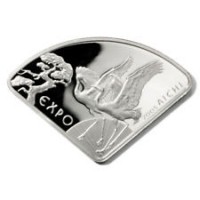
Shaped like the Steven Universe fans? Oh no
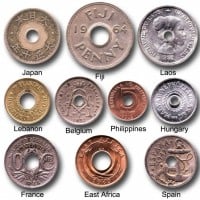
I'm no history expert but I believe that this was for easier transportation (they would put the coins on a string and it would be a lot easier to carry around).
The holes are usually round, square or rectangular.
These coins with a hole look like bagels!
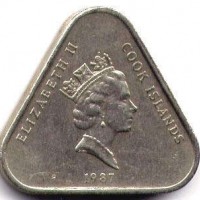
Imagine if we all used triangular-shaped coins...
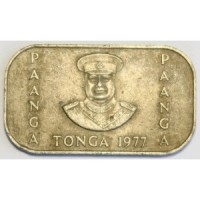
Rectangular coins are less common than square-shaped and diamond-shaped coins.
Rectangular coins have been issued in Tonga and Aruba.
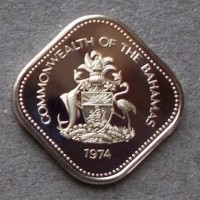
Some of the countries that have released circulating diamond-shaped coins include India, the Netherlands, Bahamas, Bhutan, Myanmar, Oman, and Pakistan.
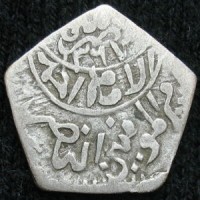
Pentagonal-shaped coins have 5 sides. Yemen used pentagonal coins in the 1940s and 1950s (the image shows one of them).
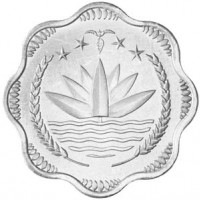
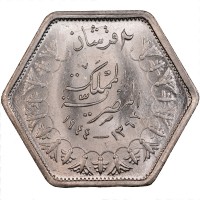
A hexagonal-shaped coin is a 6-sided coin.
The image shows an Egyptian silver coin.
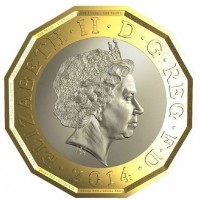
I didn't put it very high because this shape is already very close to the norm - the round shape.
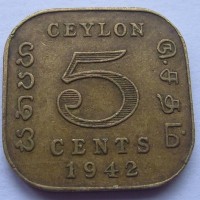
Square coins have been issued by India, Ceylon, The Netherlands, Poland, and Swaziland.
I'm a Brit and yeah it's slightly weird but I like it's uniqueness.
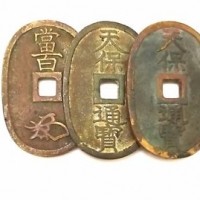
The image shows old Japanese coins, but oval coins are still used in some modern countries.